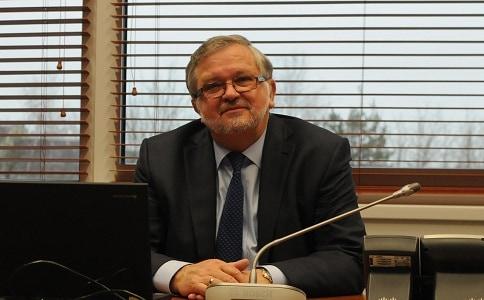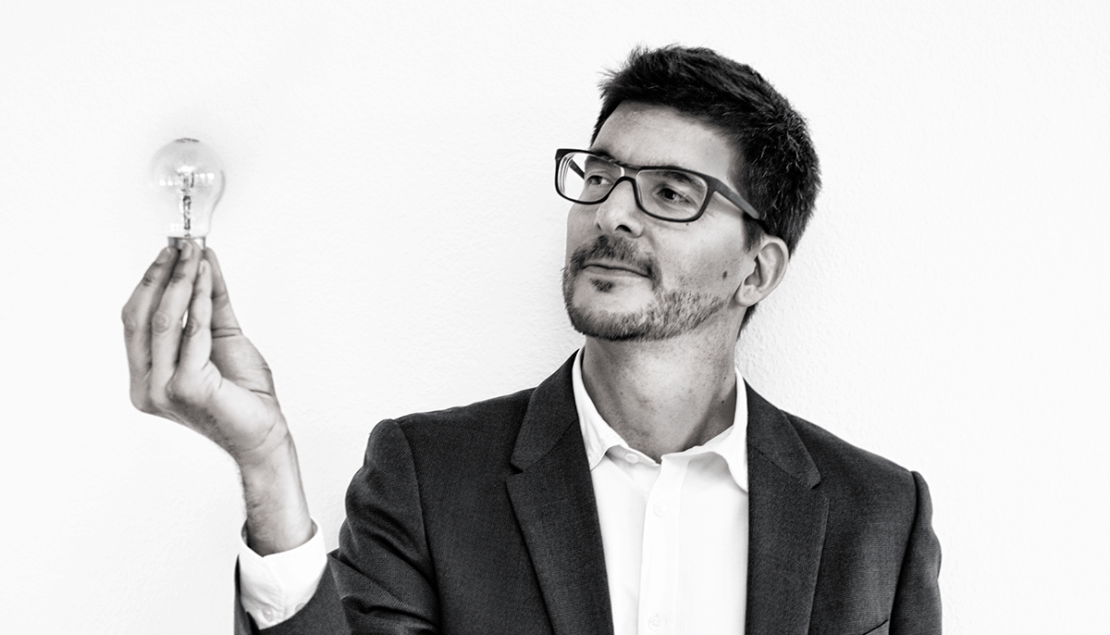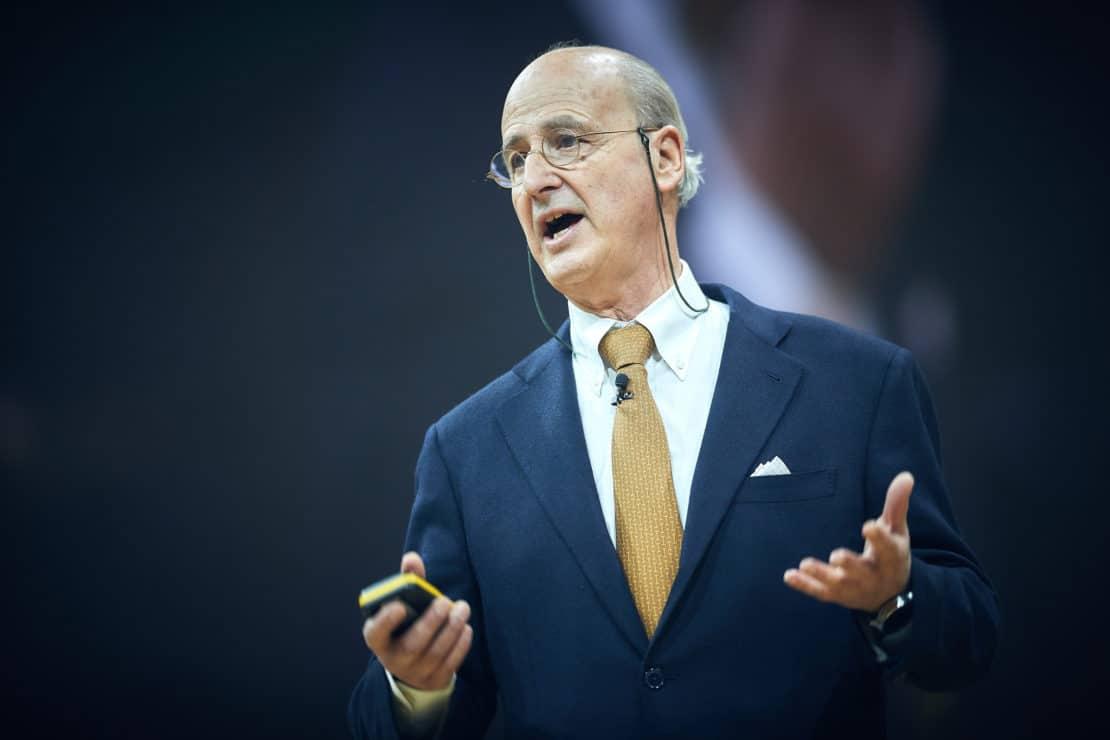21Nov2017
Vladas Algirdas Bumelis, founder and CEO of JSC Biotechpharma, is one of the leading figures in biotechnology in the Baltics. Now, he is focusing his attention on the construction of three state-of-the-art plants in Lithuania that will house cutting-edge 3D printers that will print cells and even entire body parts. “If I were a biotech entrepreneur from the West, my endeavors wouldn’t impress many. But when pursued in Lithuania, which is better known for its basketball than for anything else, they tend to catch many off-guard,” laughs Bumelis. Listed as one of Northern Europe’s Top 20 Responsible Leaders by Nordic Business Report, Bumelis graciously accepts the accolade. “My biggest recognition comes from my family. That my wife has endured me over the last 30 years and that my children still come to see us at our family home during the weekends is the thing that makes me most proud,” he grinned.
Nordic Business Report: Biotechpharma is an internationally known contract development and manufacturing organization with a worldwide client base. Yet, as its owner and CEO, you’re one of the most humble people around. Does this have anything to do with you being from Samogitia, Lithuania’s ethnic region in the northwest of the country?
Vladas Algirdas Bumelis: I’m not sure about that, to be frank. But if the Samogitans are said to be known for their resolution and ability to get things done properly and on time, then I’m definitely a true Samogitan! If I get something new off the ground, I won’t drop it until it’s finished.
NBR: You’re one of very few Lithuanians who’ve proved that a fortune can be made in Lithuania from science. How did you succeed in this?
VB: Any person with a knowledge of science is in a position to use it beyond the walls of the laboratory. My success isn’t about serendipity, I’ve worked very hard for it throughout. My philosophy is simple. If you want to accomplish something in life, you have to work hard — very hard, as a matter of fact. To break up the formula of success, 99 percent is about hard work and, the other one percent, I put down to talent. I see many people around me putting 30 or 40 percent of themselves into their work, but not the entire 100 percent. I’m just the opposite. I should point out, however, that working hard in my understanding is not about working endless hours and making sacrifices. It’s about working effectively and efficiently.
NBR: You’re known for many catchy sayings. One of them is this: ‘If you want to make a splash, do it in a different way!’ What sets you apart from other business leaders?
VB: I stand by my words. I always keep my promises. I’m genuine, and speaking with the plum in my mouth is alien to me. I once attended a lecture given by some Israelis, whom I respect tremendously for their innate disposition for innovation, that made me realise a ground-breaking idea. A true scientific gem usually lies within a profusion of stupid things.
Besides, extraordinary things tend to look very ordinary.
The other principle I apply in my business is: don’t try to be very good at what you do. Always strive to be on top. Always excel. Only then you can reap the fruits of success. Perhaps I’m old school, but I also follow the principle to stick with your knitting. Don’t try to become a jack of all trades and a master of none.
NBR: Competition within the field of biotechnologies is insane, yet your company is seen as having an edge over many others out there. How did you achieve this?
VB: Our advantage is our human resources. In other words, it’s about the big bunch of smart fellow Lithuanians working in Biotechpharma. They’re diligent, reliable and committed. Should they lack any of these three qualities, the whole manufacturing process would suffer.
What sets us apart from many other Lithuanian companies is that the nucleus of our team is extremely uncompromising. Our staff stays with us for years amidst high emigration, which has had, and that continues to have, a seriously damaging impact on the Lithuanian economy.
Unlike many others, I don’t complain about the skills of our workers. Being a seasoned traveler, I’m not aware of a single country that’s entirely happy with its education system.
Even developed countries like Sweden, France, and the United States tend to speak of poor teaching standards. That even our mediocre students do very well in many Western universities says a lot. Unfortunately, we’re too much into self-flagellation in Lithuania. We need to rid ourselves of our unceasing self-criticism that says we’re worse than the others.
Objectively, we’re a very smart nation and one that’s also very diligent and tenacious. I’ve met many leading officials from big international pharmaceutical companies who that after becoming acquainted with our scientific capabilities leave awe-struck. I often hear them say that they’d conjured up a different understanding of Lithuania.
Also, we have a distinguished attitude towards our clients with whom we treat as if they were Godlike. No wonder we have contractual obligations with major pharmaceutical companies worldwide, including in the United States, Italy, France, Switzerland, the United Kingdom and Scandinavia. All of them are willingly spending lots of money for cell research at our facilities.
We provide our clients with a fully integrated service. We can plant a gene into a microorganism or a cell and return the new-formula medicine in a vial to the client. I even enclose a syringe in the package so that the client can use it for clinical tests at home.
The ability to provide a complete service from A to Z gives us another edge, without a doubt.
NBR: Tell us about your newest endeavor! The €200 million Celltechna project that aims to produce 3D printouts of human cells and entire body organs sounds futuristic, does it not?
VB: If you lack a vision or a futuristic approach, then no new ideas will pop up for sure. Speaking about the project, I didn’t dream it, it’s the continuation of work we’ve been carrying out for many years. One of the Celltechna plants will employ gene engineering whilst manufacturing new medicine from ‘protein-folding’-based technologies involving microbe cells. The other Celltechna facility will produce medicine from mammalian cells and the third will devote itself to cell therapy technologies. The 21st century is the age when illnesses will be cured through cell binding, bonding, and folding.
NBR: When can we expect to be printing out entire organs, such as livers and kidneys?
VB: It won’t happen tomorrow or next week, but it won’t look like a crazy fantasy in five to 10 years from now. The whole bio-printing thing is developing very rapidly, as well as stem cell production and cell transformation technologies. We don’t work with embryonic cells, however, due to legislative constraints within Lithuania.
NBR: Where do the conservative national bioethics laws set the limits as to how far you can go?
VB: As I said, we’re not allowed to experiment with human stem cells. Although many like to lament Lithuania’s laws as being too stringent for direct foreign investment, I claim just the opposite. They are some of the best in the EU, especially when it comes biotechnologies. Taxation on biotechnological activities is very low in Lithuania compared to other countries, and, at 15 percent, Lithuania’s corporate tax is one of the lowest in the 28-member bloc. On top of that, we have great human resources here. As I said, I don’t see any disparity between the Lithuania-educated staff and the foreign workforce we employ.
NBR: How have you progressed with the Celltechna project?
VB: I liken it to a berry, which has to ripen first before we can savor it. To say it figuratively, the project is still in the process of ripening. First, I have to decide where I want to see the cutting-edge scientific facility. It will be in Lithuania, that’s for sure. I hope that the site will be chosen by the end of the year. In 2018, we will start the design process. All three plants should be up and running before 2023 if all goes well.
NBR: Will you be looking for an investor along the way?
VB: I’m not a money bag, trust me, although many believe that my entrepreneurial success has derived from some bonanza. I’ll certainly rely on bank loans in carrying out the project. And if a trusted investor comes along, I’ll definitely be eager to listen to what he or she has to offer.
NBR: With the tremendous progress made by biotechnologies in recent years, when do you think we will be able to rein in cancer?
VB: I doubt whether it will happen in the near future, to tell the truth. We’ll overcome cancer when we truly perceive the nature of the illness. Although we’ve progressed a lot in the regard, I sometimes believe that there’s much more for us to learn. At this point in time, there remain too many things beyond our limits. And the more we find out about cancer, the more we get baffled by it. I may be old school, but I do believe in the existence of God. The complexity of the cell prompts me to suspect a divine intervention behind it. Charles Darwin’s theory of evolution falls short in explaining it all. The sophistication and the elegance of the cell is mind-blowing, and only those involved in biotechnologies can fully understand it.


